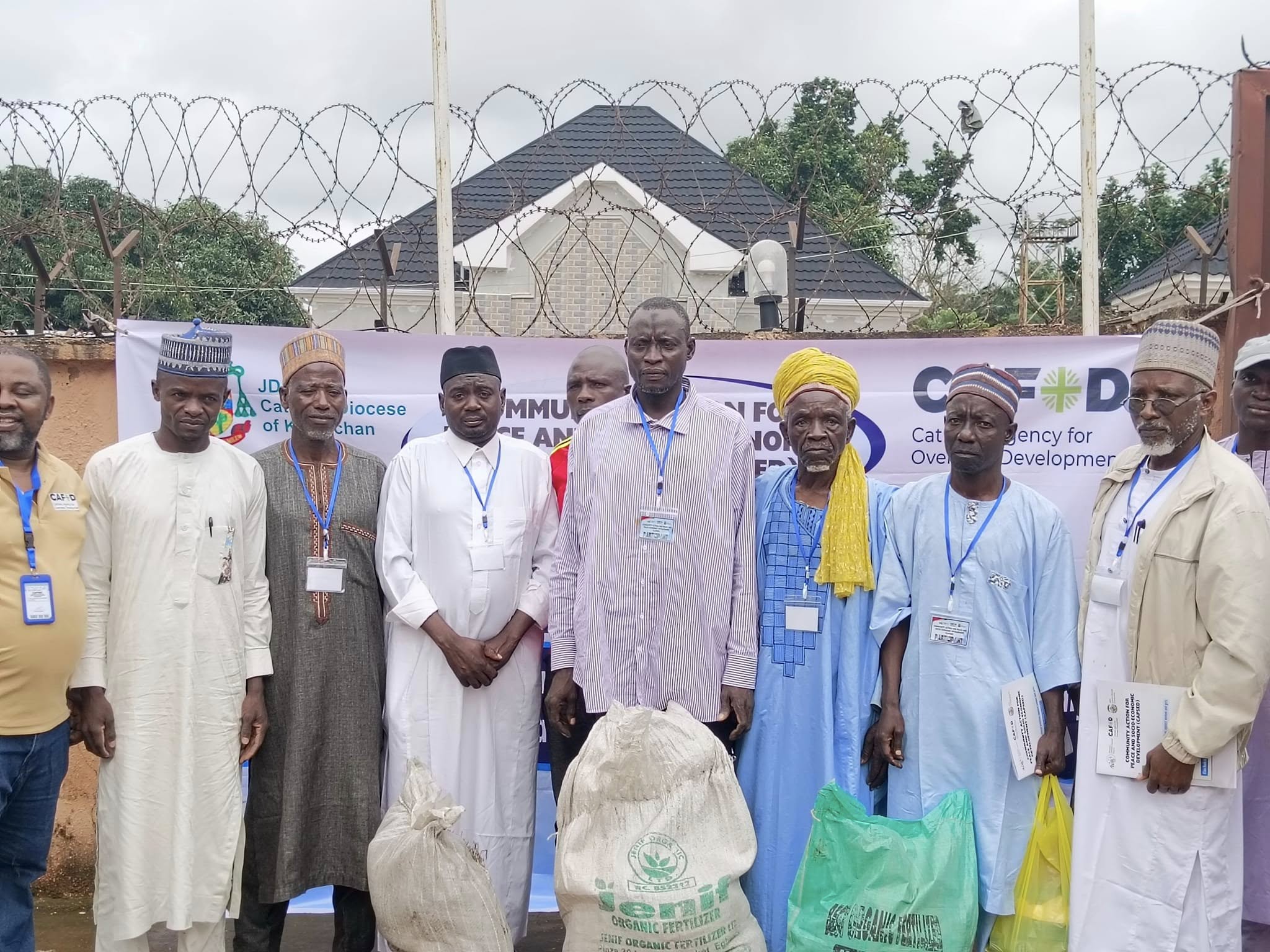Community Service Scheme: Alternative to Imprisonment
Introduction
Nigeria’s correctional facilities are overcrowded. According to the Nigerian Correctional Service (NCoS), as of April 2024, the total prison population stood at 79,188. Out of these, over 52,446 inmates—more than 66%—were awaiting trial. This statistic reflects a deeper issue: the country’s over-reliance on custodial sentencing.
However, an alternative is emerging—community service sentencing. One organization leading the advocacy and implementation of this alternative is the Justice Development and Peace Commission (JDPC).
This article examines the community service scheme as a viable alternative to imprisonment and explores the efforts of JDPC in driving reform within Nigeria’s criminal justice system.
What Is Community Service Sentencing?
Community service sentencing is a non-custodial punishment where offenders are required to perform a set number of hours of community-based work instead of serving time in prison. This may include:
- Cleaning streets
- Painting public buildings
- Assisting in hospitals or old people’s homes
- Environmental sanitation
- Public education outreach
The goal is to correct behavior, not punish it harshly. It’s about reintegration, not rejection.
Why Nigeria Needs Non-Custodial Sentencing
1. Overcrowded Prisons
Nigeria’s prison system was originally designed to hold about 50,000 inmates. Today, it holds nearly 80,000. Overcrowding results in poor living conditions, increased violence, and the spread of diseases like tuberculosis and skin infections. It also makes rehabilitation nearly impossible.
2. Cost to Government
Imprisonment is expensive. The Federal Government of Nigeria spends approximately ₦1 million per inmate per year. Non-custodial sentences cost significantly less and are economically sustainable.
3. First-Time and Petty Offenders
Thousands of Nigerians are imprisoned for minor offences such as loitering, traffic violations, petty theft, or inability to pay fines. These offenders are not threats to society. Incarcerating them only worsens their situation.
4. Rehabilitation vs. Punishment
Many inmates come out of prison more hardened. Community service offers a chance to restore offenders without isolating them from society. It builds character and empathy.
Legal Backing: The Administration of Criminal Justice Act (ACJA) 2015
The ACJA 2015 provides the legal framework for non-custodial sentencing in Nigeria. Section 453–460 of the Act outlines procedures for issuing community service orders.
Key features include:
- Judges can impose non-custodial sentences for offences punishable by less than 3 years.
- Offenders can be directed to perform unpaid community service under supervision.
- Local authorities and civil society can help implement the service scheme.
Yet, the problem remains: implementation is slow and inconsistent.
JDPC’s Role in Community-Based Justice Reform
The Justice Development and Peace Commission (JDPC) is the social arm of the Catholic Church in Nigeria. For over two decades, it has championed human rights, justice reform, and community-based rehabilitation programs.
Key JDPC Objectives:
- Decongest prisons through community service schemes.
- Promote restorative justice.
- Support victims and reintegrate offenders.
- Train stakeholders in the criminal justice system.
- Monitor human rights conditions in correctional facilities.
JDPC Community Service Pilot Projects
JDPC’s impact is practical and measurable. Below are some of their notable interventions:
1. Lagos State JDPC: Community Service Coordination
Since 2018, the Lagos JDPC has worked closely with the Ministry of Justice and Magistrate Courts to implement community service options.
Results:
- Over 600 offenders have completed community service sentences.
- Crimes ranged from traffic violations to petty theft.
- Reoffending rates dropped by 40% compared to similar custodial offenders.
2. Oyo State JDPC: Reintegration Programs
In Ibadan, the JDPC collaborates with local NGOs and the judiciary to not only assign community service but to provide counseling, skills acquisition, and follow-up.
Success:
- 80% of monitored offenders did not commit a second offence.
- Vocational training helped many secure employment after completion.
3. FCT-Abuja JDPC: Court Advocacy and Paralegal Support
In Abuja, JDPC has placed paralegals in Magistrate Courts to advocate for non-custodial options at the point of sentencing. They also track and monitor offenders during their service.
Outcome:
- Over 200 petty offenders diverted from prisons in 2023 alone.
- Reduced burden on Suleja and Kuje correctional centres.
Real-Life Success Stories
Case Study 1: Sarah, 22, Traffic Violation
Sarah was convicted for driving without a license. Instead of 3 months in jail, she was sentenced to 80 hours of community service sweeping market areas in Surulere, Lagos.
Outcome:
After completing her sentence, Sarah went on to register with a driving school and now owns a ride-hailing business.
Case Study 2: Musa, 29, Petty Theft
Musa was arrested for stealing soft drinks from a supermarket. With JDPC’s intervention, the magistrate assigned him to 120 hours of cleaning duties at a government secondary school in Abuja.
Outcome:
Musa was later offered part-time janitorial work at the same school and now mentors other young men in his community.
Challenges to Full Implementation
Despite clear benefits, the community service scheme faces serious obstacles:
1. Judicial Awareness and Acceptance
Many magistrates still prefer traditional sentencing. There is a lack of training and awareness on how to apply the ACJA community service provisions effectively.
2. Monitoring Infrastructure
Community service must be supervised. Most LGAs lack designated officers to track and report offenders’ compliance.
3. Public Perception
There’s a stigma that community service is a “soft” punishment. This view must change. Offenders are still being held accountable, just not behind bars.
4. Lack of Nationwide Scale
As of 2024, only a few states like Lagos, Abuja, Oyo, and Enugu have structured community service implementation systems. JDPC is actively working to scale this nationally.
JDPC’s Strategic Roadmap (2025–2030)
To scale and institutionalize community service sentencing, JDPC is focusing on:
A. Stakeholder Training
Judges, prosecutors, police officers, and prison officials are being trained on restorative justice and non-custodial options.
B. Policy Advocacy
JDPC is lobbying state Houses of Assembly to domesticate the ACJA, especially in northern states.
C. Tech-Enabled Monitoring
Pilots are underway to use mobile apps for real-time tracking of offenders’ hours and service locations.
D. Victim-Offender Mediation
JDPC promotes mediation as part of the sentence—ensuring offenders apologize, compensate, or serve the affected community directly.
Global Precedents: Why Community Service Works
Countries like the UK, Norway, and South Africa have successfully integrated non-custodial sentencing into their justice systems.
- In the UK, community sentences are given in 14% of all cases.
- South Africa reduced its low-risk prison population by 17% between 2016 and 2022 using alternative sentencing.
- Norway has one of the lowest reoffending rates globally (20%) due to emphasis on rehabilitation and reintegration.
Nigeria stands to benefit by adapting these models with localized solutions.
Call to Action
The Nigerian justice system is at a crossroads. Imprisonment should not be the default for every offense—especially when viable alternatives exist.
JDPC’s efforts demonstrate that a community service scheme is more than just a theory; it is an effective, humane, and sustainable solution to prison congestion and youth criminality.
What Must Be Done:
- The Ministry of Justice should fund the full rollout of non-custodial options nationwide.
- State governments must domesticate and enforce the ACJA.
- Civil society and religious bodies should support and monitor compliance.
- The public must be educated to embrace community service as legitimate justice.
Conclusion
Prisons should be reserved for violent criminals and severe offenders. Petty crimes and first-time offences deserve a second chance through service, not a life-altering prison sentence.
The JDPC’s leadership in this space offers a beacon of hope. Through policy advocacy, pilot projects, and faith-driven justice, they are reshaping how Nigeria treats offenders—with compassion, dignity, and a clear path to reform.
Community service is not a weak punishment. It’s smart justice. And Nigeria needs it now more than ever.


